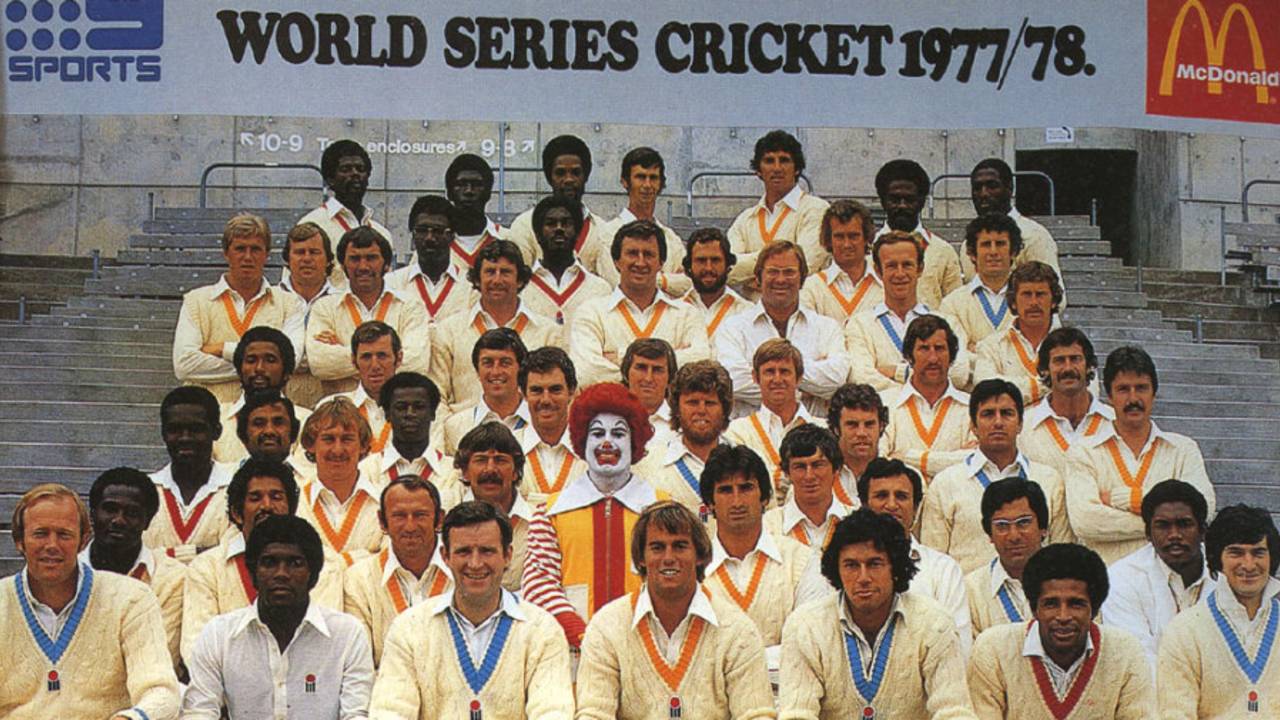If you idly scanned through the scorecards of the 1884-85 Ashes - and let's be honest, which of us hasn't spent our leisure time doing exactly that? - you would be struck by the fact that in the
second Test, Australia had nine debutants and a completely different XI from the one that played the first Test. Why? Australia captain
Billy Murdoch had, after the first Test, led his players in demanding 50% of the gate takings. When their demand was refused, Murdoch's men sat out of the Melbourne Test and Tom Horan captained Australia, who sunk to a to a 10-wicket defeat. Several members of the side returned for the
third Test, although it was six years before Murdoch played
another Test for Australia. And two years after that, he switched allegiance
to England.
The daddy of all pay disputes was the one that led to the World Series Cricket schism.
Kerry Packer, the media magnate who ran the Nine Network in Australia, had unsuccessfully tried to wrest cricket's broadcast rights from the ABC. If he couldn't buy the rights, he set about buying the players. The Australians were, in effect, amateurs at the time, so appallingly paid that Packer said cricket was "the easiest sport in the world to take over ... nobody bothered to pay the players what they were worth". The result was that most of Australia's - and many of the world's - best cricketers ended up playing World Series Cricket, and the matches now historically recorded as "official" Tests at the time featured second-string Australia, and then, West Indies sides. It took only a couple of years for the authorities to agree to negotiate with Packer, who gained the Test cricket TV rights for the Nine Network, and the WSC era was over.
The Indian dispute of 1989 had its origins in a testy relationship between the BCCI and a group of senior players. The captain,
Dilip Vengsarkar, had defied the board's instructions during a home series in 1987 by writing newspaper columns, and incurred a six-month ban. And by 1989, he and several other senior players were unhappy about certain clauses in their contracts. Following a disappointing tour of the West Indies, a group of players returned home via the USA and Canada to play in exhibition matches against the wishes of the BCCI. That led to bans for Vengsarkar, Kiran More, Arun Lal, Mohammad Azharuddin and Ravi Shastri, while other, more junior players were let off with fines. The suspended players took the BCCI to court, and a settlement was reached.
Talk of strike action for this year's Ashes is not quite correct, for if that was to happen, the Australian players would be uncontracted, and thus unable, technically, to strike. Back in 1997, strike action was also mooted when the players were locked in a tense negotiation with the Australian Cricket Board (ACB, now CA) over pay. Still relatively new at the time, the Australian Cricketers' Association eventually secured a deal by which the playing group would be granted roughly a quarter of Australian cricket's revenue streams. One of the results was that it became more financially rewarding to play domestic cricket in Australia. Twenty years later, Mark Taylor, who as national captain in 1997 was in danger of being sacked over his support of the ACA stance, is now a Cricket Australia board member, and believes that Australia's players will be no worse off under the proposal CA has put forward.
The relationship between the WICB and its players has been rocky for much of the past two decades, since Brian Lara and his men initially refused to travel to South Africa for a series. Since the turn of the century, two particular flashpoints have stood out. In 2009, the West Indies Players' Association boycotted a series against Bangladesh, which led to a farcically weakened West Indies squad being named as replacements under the captaincy of Floyd Reifer, who had not played international cricket for a decade. Not surprisingly,
Bangladesh won the Tests 2-0 and the ODIs 3-0. Five years later, another contractual dispute between the players and the board led to West Indies walking out on their tour of India midway through. It was an embarrassing situation for West Indies cricket and
Dwayne Bravo, the captain of the West Indies side in question, was never seen in a Test or ODI team again.
